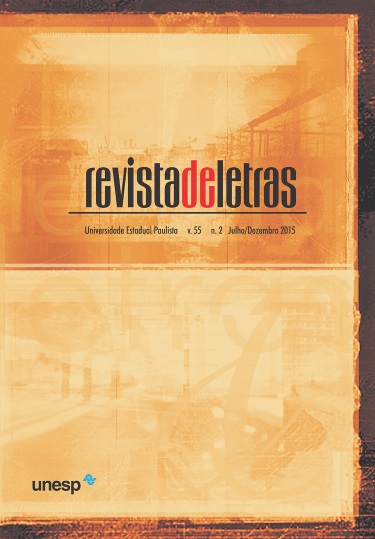The fantastic report and the presence of otherness
Keywords:
Literature, Fantastic genre, Otherness,Abstract
The current research aims to discuss the short story “O Homem da areia”, by E. T. A. Hoffman, observing the trait that characterizes it as the fantastic genre and the presence of otherness. The narrative reveals, in its very beginning, an atmosphere where the strange, the evil are presented in life of the character Natanael. The memory of the past events in his boyhood influences his adult life; the symbolic figure of the man of the sand pops up in the fairy tales and transit in the domain of the real to the fictional. Between lucidity and madness Natanael’s acts are linked to the nefarious approach of Coppélio/Coppola whose enigmatic smile conveys cruelty. The short-story begins with hybrid genre epistolography/short-story and makes an incursion by the ways of play and fantasy. From the first letter that introduces the story, we can perceive that there is something uncomprehensive haunting young Natanael, indicating premonition of hellish situations which he may live. The reader presupposes that the strange element will be present throughout the narrative, after he tells, in retrospection, the whole traumatic story in his boyhood in his familial environment. The interruption of external elements in the daily domain adds even further the atmosphere of uncertainty, providing hesitation about the interference of fantastic elements projected by Natanael’s sick mind or the unbelievable, the supernatural present in the natural world.
Downloads
Published
Issue
Section
License
Os manuscritos aceitos e publicados são de propriedade da Revista de Letras. Os originais deverão ser acompanhados de documentos de transferência de direitos autorais contendo assinatura dos autores.
É vedada a submissão integral ou parcial do manuscrito a qualquer outro periódico.
A responsabilidade do conteúdo dos artigos é exclusiva dos autores.
É vedada a tradução para outro idioma sem a autorização escrita do Editor ouvida a Comissão Editorial.

